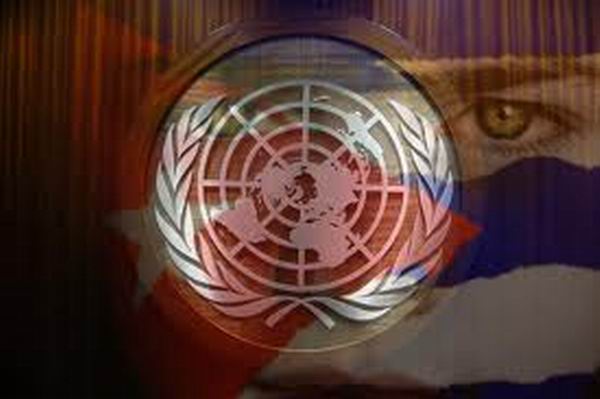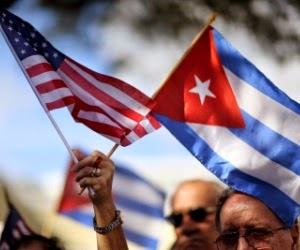I first curiously took the big book full of pictures and images of a deed, a milestone – at 11 years old, I couldn’t fully grasp the relevance of those documents my father kept so carefully. In Marta Roja’s book, I read this phrase taken from Fidel’s “History will Absolve Me”:
“It seemed that the Apostle would die during his Centennial. It seemed that his memory would be extinguished forever. So great was the affront! But he is alive; he has not died. His people are rebellious. His people are worthy. His people are faithful to his memory. There are
Cubans who have fallen defending his doctrines. There are young men who in magnificent selflessness came to die beside his tomb, giving their blood and their lives so that he could keep on living in the heart of his nation. Cuba, what would have become of you had you let your Apostle die?”
It was precisely this phrase that prompted me to take notes on the pamphlet, took me to want to know José Martí deeper, the Marti who was introduced to me as a boy who hated slavery; who suffered when he saw a slave being whipped as if it were him, an event he would later recall in the poem No. 30 of his Simple Verses:
The bloody lightning crosses
the gloomy storm cloud:
The ship throws up, hundreds and hundreds,
Black men through the gate.
The wind fiercely tears
The bushy seedbeds;
As the line of naked slaves,
Walked and walked.
The storm shakes
The teeming huts:
A mother and her child
Pass by shrieking.
Red, as in the desert,
The sun rose on the horizon:
It shed light on a dead slave,
Hanging from a tree in the forest.
A boy saw it: he shook
With anger for those who suffer:
And, at the feet of the dead, he swore
To avenge the crime with his life!
It was the great man who led the attacks on the Moncada Barracks who brought the Cubans closer to their history. It was Fidel who brought back that deep, firm thinker named Marti. He said it in “History will Absolve Me” when he stated: “I carry the teachings of the Master in my heart, and in my mind the noble ideas of all men who have defended people’s freedom everywhere!“.
It was the month of July 1953, the year that marked the 100th anniversary of Jose Marti and the 50 years of the Republic. A generation of youths who erupted from the University of Havana to later expand throughout Cuba like gunpowder; a generation of youths who had seen the image of Jose Marti demeaned by the coup d’etat orchestrated by Batista. A generation, THE GENERATION OF THE CENTENNIAL, who chose not to stay quiet in the face of the disgrace of having their country ruled by pro-Washington and anti-national submissive interests.
When I was in sixth grade of elementary school, I had a teacher that brought us closer to those young men and their story. Although she has grey hair now, my teacher Maria Murdoch continues to be my beautiful and sweet teacher, who worried about the childhood, the Homeland, the honor and the virtue; who wanted children to drink the best lessons from the life and work of Jose Marti.
Maybe it was that desire to nurture ideas in her young pupils what made teacher Maria assign an essay with the title Why the Moncada? at the end of the course of Spanish and Literature to her students of Sixth Grade at the Antonio Briones Montoto Elementary School in Guanabacoa.
As a great history lover, I took this opportunity to rake through my father’s green chest to consult his two “gems” about the Moncada. That is how I wrote my essay and I mentioned Carlos Manuel de Céspedes, the Father of Homeland; Antonio Maceo, also called the Bronze Titan; the burning of the city of Bayamo; Marti, the mastermind of an attack that changed history; and Fidel’s self-defence at the trial for the attack of the Moncada Barracks.
When I read my essay in front of the class, Maria Murdoch told me: “I don’t know, but you might become a journalist someday.” At the young age of 11 years old, I could not fully understand what my teacher wanted to say. Today I’m 50 years old and I have lived numerous glorious celebrations of the 26th of July. A whole new history has been built in the 50 years of struggle to carry on radical changes in Cuban society.
The Cuba of present times is neither the Cuba of the past nor the Cuba in which the youths of the Generation of the Centennial lived.
This year, 2013, Cuba celebrated the 160th anniversary of the birth of National Hero Jose Marti and the 60th anniversary of the events of the 26 of July, later named the Day of National Rebellion. These two events have left permanent imprints on the memories and actions of those people who know the worth of freedom in any place of the world.
And I prepared too, as a journalist of Radio Cubana, to review the work of the Marti Press Council, to do a large coverage about the Moncada; because in one way or another, that meeting with “History will Absolve Me” also left a permanent imprint in my life when, at the tender age of 11 years old, I swore , like Fidel and the Generation of the Centennial did, to never let Jose Marti die.
Translated by ESTI




